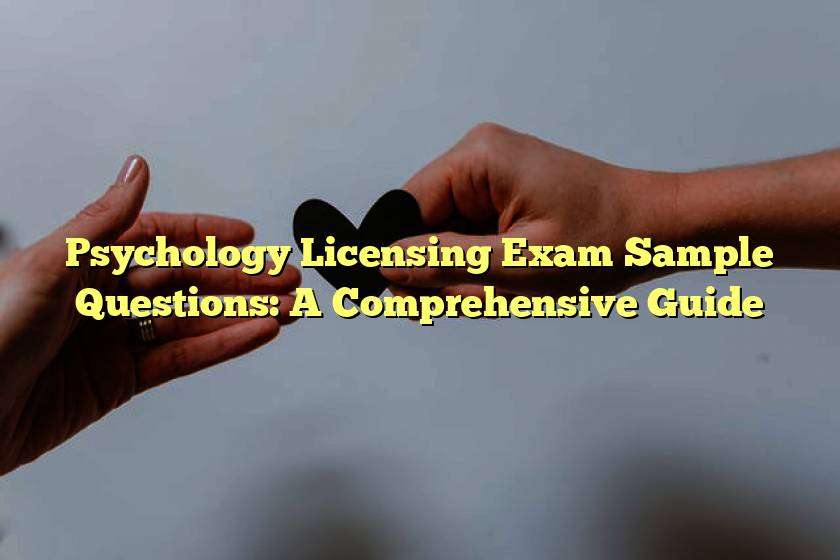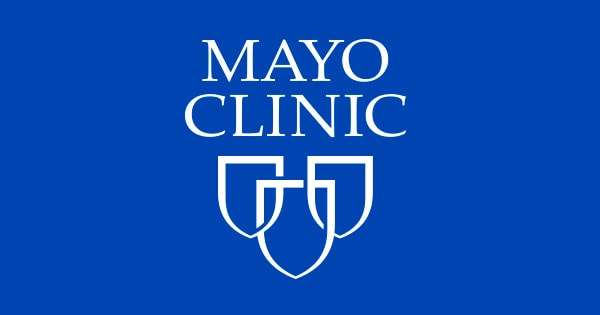If you’re a psychology professional or student looking to take a licensing exam, then you know how important it is to prepare thoroughly for the test. The exam is designed to measure your knowledge of psychology concepts, theories, and practices that you need to know to become a licensed psychologist. In this article, we’ll provide you with a comprehensive guide on the most common psychology licensing exam sample questions, and help you prepare for your upcoming exam.
Understanding the Psychology Licensing Exam
The psychology licensing exam is designed to test your knowledge of psychology concepts, theories, and practices that you need to practice as a licensed psychologist. The exam is typically composed of multiple-choice questions, and you’ll usually have a few hours to complete it.
The exam is divided into various sections of psychology, and each section covers a specific set of concepts and theories. As a psychology student or professional, you’ll need to be familiar with these concepts and have a deep understanding of how they apply to real-life scenarios.
What Are the Most Common Psychology Licensing Exam Sample Questions?
The psychology licensing exam questions are designed to test your knowledge of various topics in psychology. Some of the most common sample psychology licensing exam questions that you’ll come across include:
1. Describe the difference between operant and classical conditioning.
Operant and classical conditioning are two of the most fundamental types of learning that psychologists study. Classical conditioning involves learning by association, while operant conditioning involves learning by reinforcement. In your answer, you should explain the differences between these two types of conditioning and provide examples to illustrate your points.
2. Discuss the impact of culture on human behavior.
Culture plays a significant role in shaping human behavior, thoughts, and emotions. In this question, you’ll need to demonstrate your understanding of cultural psychology and its impact on various areas of human behavior. You should explain how cultural norms, beliefs, and values can influence attitudes, behavior, and socialization.
3. Describe the stages of cognitive development proposed by Jean Piaget.
Jean Piaget proposed a stage theory of cognitive development that describes how children’s thinking changes as they grow and mature. In this question, you’ll need to describe these stages in detail and provide examples of how children at each stage might think, feel, and perceive the world around them.
4. Discuss the differences between major depressive disorder and bipolar disorder.
Major depressive disorder and bipolar disorder are two of the most common mood disorders that psychologists encounter. In this question, you’ll need to describe the symptoms, causes, and treatment options for each disorder and discuss the differences between them.
5. Explain the concept of social loafing and provide an example.
Social loafing is a phenomenon that occurs when individuals put less effort into a task when working in a group compared to when they’re working alone. In this question, you’ll need to explain the causes and consequences of social loafing and provide an example to illustrate the concept.
How Can You Prepare for the Psychology Licensing Exam?
Preparing for the psychology licensing exam can be a daunting task, but with proper planning and preparation, you can increase your chances of success. Here are some steps you can take to prepare for the exam:
1. Review your psychology coursework
Take some time to review your psychology coursework and supplement your knowledge with additional reading. Pay attention to the concepts and theories that are likely to be covered on the exam.
2. Use study guides and practice exams
Use study guides and practice exams to assess your knowledge and identify areas where you need to focus more attention. Practice exams can also help you manage your time better and become familiar with the format of the exam.
3. Create a study schedule
Create a study schedule that covers all the topics that are likely to be covered on the exam. Allocate more time to areas where you need more practice, and give yourself enough time to rest and recharge before the exam.
4. Find a study group
Consider joining a study group where you can discuss difficult concepts and share study strategies with other psychology students or professionals who are also taking the exam.
5. Take care of your mental and physical health
Make sure to take breaks, exercise, and get enough sleep during your study period. Taking care of your mental and physical health can help you retain information better, reduce stress, and improve your overall performance on the exam.
Conclusion
Preparing for the psychology licensing exam is a challenging but rewarding experience. By familiarizing yourself with the most common sample questions and following the preparation tips we’ve outlined, you can increase your chances of success and achieve your goal of becoming a licensed psychologist. Remember to take care of your mental and physical health and seek help from others whenever you need it. Good luck!



